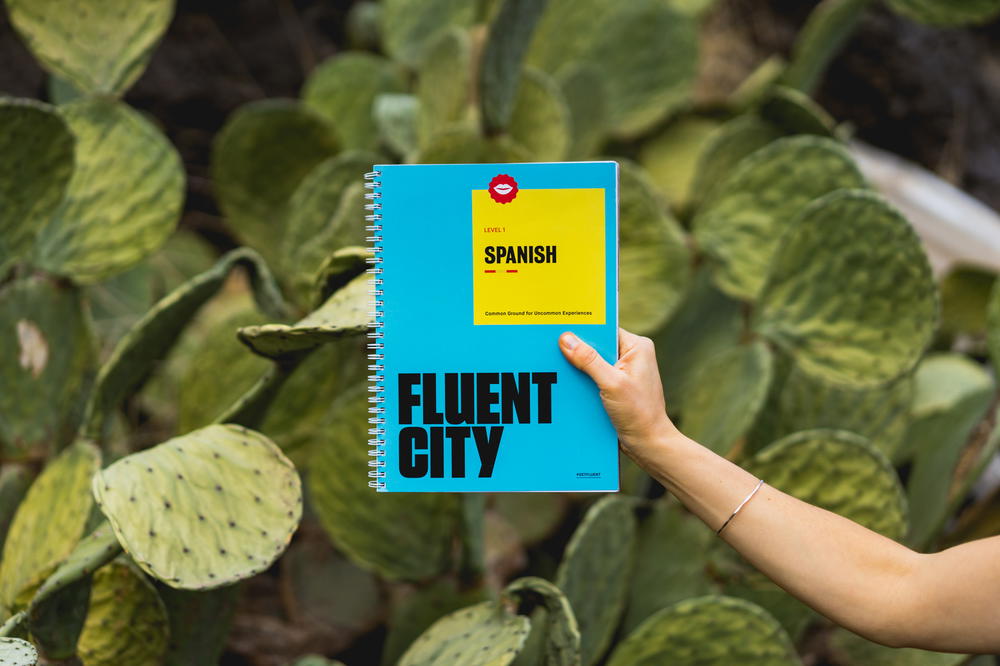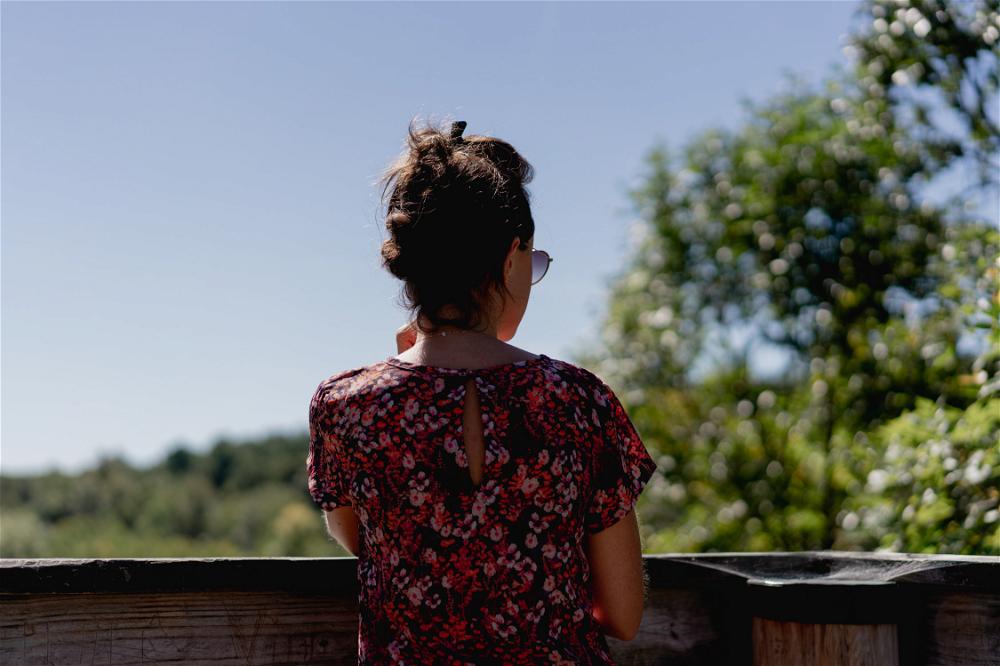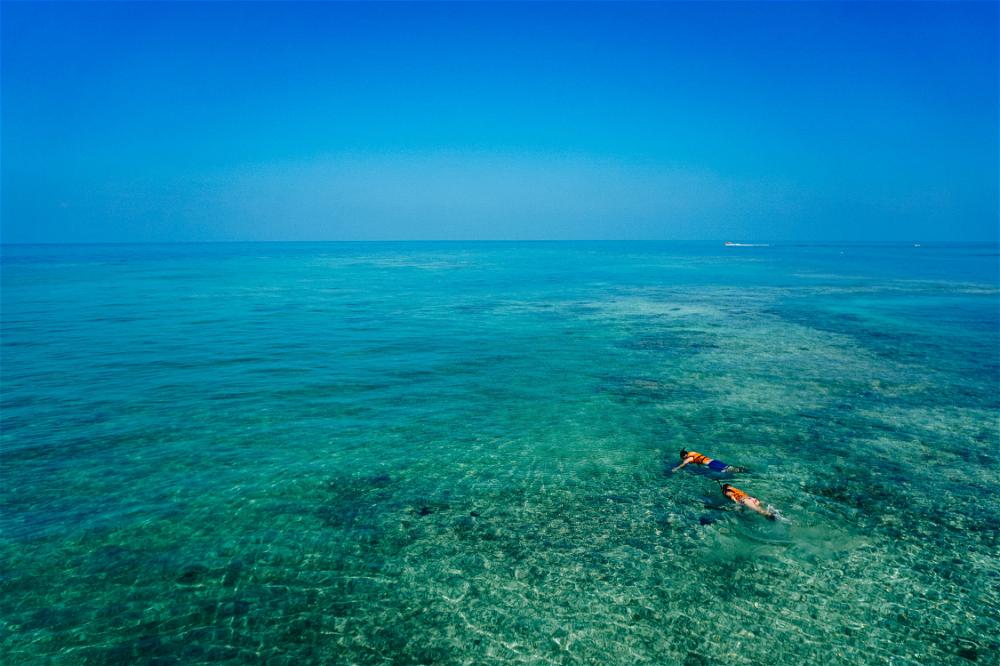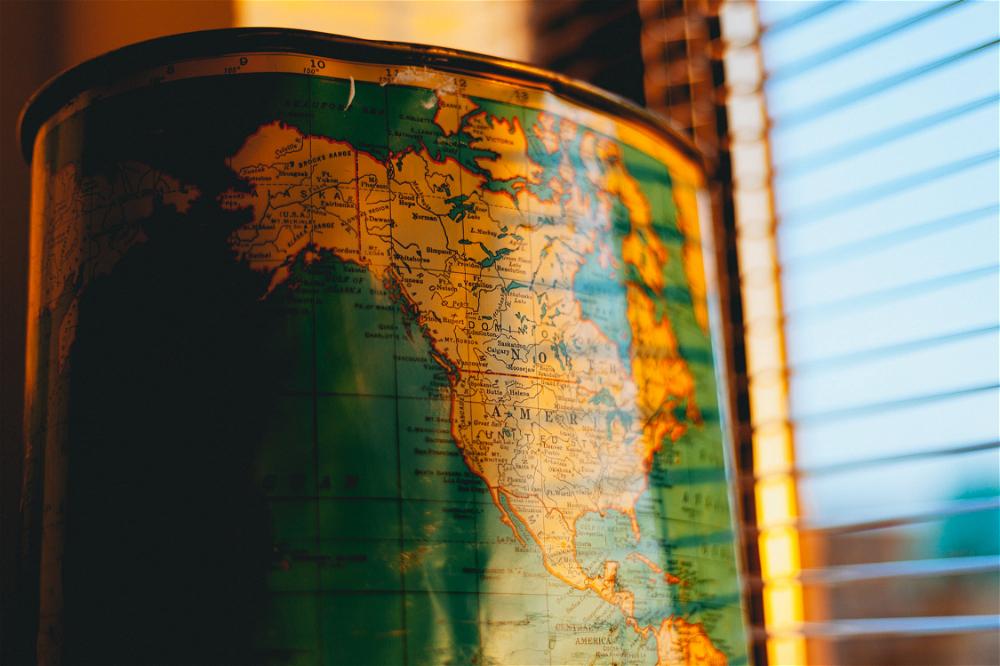How to Learn Languages and Helpful Phrases for Traveling

Did you ever realize that traveling gets a little bit easier when you know a few words in the language of the country where you're going? We've created a list for a few surprise ways to learn languages based on what works best for us.
This article may contain affiliate links. We earn a small commission when you purchase via those links — at no extra cost to you. It's only us (Becca & Dan) working on this website, so we value your support! Read our privacy policy and learn more about us.
Table of contents
- Why learning a language is important for travel
- Take a foreign language class in your home city.
- Download a language app for foreign language phrases and vocabulary words
- Find a language exchange or language meetup to brush up for your trip
- Watch TV with subtitles in a foreign language to prep for travel
- Read a magazine in another language to pick up new words with context
- Use the foreign language glossaries in your travel book during a trip
- Try to think in the foreign language you’re trying to learn
- Create post-it notes around your house with foreign language vocabulary
- Practice writing in a foreign language to prepare for taking a trip abroad
- Ask me this: How did you learn so many languages for traveling?
- Next: Ask me how I learned Chinese for working abroad in China
你好!
Oh, that’s Chinese for hello.
If you aren’t up to fluently reading Chinese yet, no problem. This article is about the best and most creative ways to learn a new language for your upcoming trip.
Why learning a language is important for travel
I’ll be the first to say it: we’ve gotten creative in learning languages.
We’ll listen to foreign language music (in Spanish). We’ll hold up Google Translate to learn new words on a food label. We’ll learn how to say “no sugar” in one of my favorite apps (it’s called Drops) for learning a new language.
There’s a lot you can do to learn languages for travel!
Traveling becomes a lot easier when you know a few phrases in the language of the country you’ll be traveling to.
People tend to joke that if you can say, “Yes,” “No,” “Where’s the restroom?” and “I’ll have another beer, please,” then you’re set.
It’s almost true, but there are a whole list of other useful phrases that can keep you safe, happy and a little less stressed when you’re on vacation, studying or working abroad.
What about when you need to haggle over prices in a market, so that you don’t get charged the ‘foreigner price?’
What about when you have to talk about some foods you’re allergic to?
What about when you want to read a bus schedule, and none of it’s in a language you can read?
I’m listing a few helpful tips and tricks that have helped me learn a new language when I travel to a new place.
Ready to learn Spanish, Chinese, German, Korean, Japanese, French or Russian (or any language under the sun) with some proven hacks Let’s get started.
Take a foreign language class in your home city.
Companies like Fluent City offer language classes for professionals at convenient hours like 7-9 pm on weekdays, once a week.
Check out local language schools in your area. There are also programs online that you can use to talk with a native speaker over Skype or Google Hangouts.
Both Dan and I completed 10-week courses with Fluent City: Arabic 1 for me and Spanish 2 for Dan.
The teachers are awesome and the settings are intimate, so you always get attention.
Their staff and customer support is also great when you have questions about rescheduling a class, textbooks or anything else.
A class is a good way to keep yourself accountable for having a dedicated time to learn.
But, classes might not be for everyone, so let’s see the next tip for learning a new language for traveling across the world.
Download a language app for foreign language phrases and vocabulary words
If you think about all the mindless and useless things you do on your phone during your commute or any time spent waiting (for someone to show up, for something to start, for something to end…), you could very well use this time to learn a new foreign language or its basics with a language app.
For my and Dan’s trip to Israel, I brushed up on some cool words like the Hebrew for ‘kilogram,’ ‘meter,’ and ‘black pepper’ with a language-learning app I found for free on the Apple app store.
If you search with keywords like, “Hebrew easy free,” or “Learn Hebrew easy,” you’ll get a choice of several apps that may not be available with all sets of vocabulary in the free version, but enough to start with.
I once started Level 1 German with Duolingo to see where it would get me (I remember how to say bread and water) and I also learned a bunch of Hindi numbers past 20, by the tens, for my eight days spent on an India trip a few years ago.
You will never know when learning the Hindi for ‘sixty’ can get you the local price when shopping for jewelry.
Guess what, it worked! (I think it was because everyone in the market was baffled that I could count by the tens to one hundred in Hindi)
Another favorite app that I used for learning Vietnamese is the app Drops, which has an impressively cute interface that’s friendly to the user and feels like playing a game.
I was able to retain some basic words that made reading menus much more fun! Words we retained from studying Vietnamese on Drops are now limited to ‘carrot,’ ‘noodles’ and ‘sugar,’ but you get the point. We wouldn’t have gotten there without Drops.
Find a language exchange or language meetup to brush up for your trip
Use your social network to determine if any friends know a native Spanish or Russian speaker, for example, or if anyone is in touch with an expat who is new to your city.
Sometimes these types of people may be looking for a native English (or other) speaker with whom to practice on the regular.
This is a free way to make a new friend and to also learn about the culture of another country from a person who is from that place.
These days, when we head to a new city, I immediately join Facebook groups for expats, travelers and language exchange meetups.
I first run a simple search for, “Taipei expats,” for example, and then I browse groups and see if there are any pertinent tangential groups available.
Watch TV with subtitles in a foreign language to prep for travel
While I do love music and would love to recommend music, it happens that TV (or YouTube) is more visual and can get you subtitles.
Go on YouTube for videos in another language in some basic topics.
You have no idea what’s out there until you try!
Did you know loads of people have made videos about the Arabic alphabet? And heaps of videos about Spanish slang, dedicated to every country in Latin America?
You can even learn accents and listen to native speakers give grammar tips about so many foreign languages, all for free on YouTube, where your language study can begin.
You can keep clicking and clicking until you’ve gotten through 10 different flavors and styles of learning the letters in Arabic.
You can also try watching versions of sitcoms (the show Friends is always a prime example) subtitled or dubbed in Spanish, French, Portuguese… the list never ends.
Sometimes, when I’m at the gym, I watch telenovelas, news stations in Spanish or Caso Cerrado, a form of Judge Judy for Spanish-speaking audiences. (Native Spanish speakers find this hilarious)
Read a magazine in another language to pick up new words with context
Using foreign language magazines can be useful and fun, as conversation-starters.
When I tutored English privately in Shanghai, I would often leaf through Time Out Shanghai magazine to talk about popular words and ideas, in English, with my student.
When I’m in the subway in New York, I like to look at all the foreign language publications that you’ll find neighborhood by neighborhood based on the populations who live there. I like to sound out words in Russian based on context, like names of places and celebrities, and sometimes I’ll try to read a whole article in Spanish about current events.
If you want to get better at a language for your next trip, start with some resources right at your fingertips like foreign language magazines and newspapers.
Use the foreign language glossaries in your travel book during a trip
If you like to travel with a good old-fashioned soft-cover guidebook like I do (Lonely Planet pocket language guides are the best!), these types of books often will have a glossary in the back.
This can be helpful prep for reading menus and picking up some basic words like left and right, north and south, yes and no.
When we went to Ireland, we had a Lonely Planet Irish Language & Culture guide, and while we for sure couldn’t figure out how to say ANYTHING at all in Gaelic, it was fun.
Try to think in the foreign language you’re trying to learn
This is more of an advanced technique, for sure. Here it is.
If you try and switch your internal dialog to the language that you’re trying to learn, it will help you identify gaps in your vocabulary.
You can write down or look up those words to help familiarize yourself with those words.
For example, while you’re walking down the street, think of the things you’re doing, and if you realize you don’t know how to say ‘street corner’ or ‘taxi,’ write down these words in your Notes app in your phone, and look them up later.
Create post-it notes around your house with foreign language vocabulary
If you’re struggling to remember common things, like couch, kitchen, bedroom, mirror, knife, fork, etc… then label those things with post-it notes!
We often have post-it notes lying around (usually on the floor because they fall down) all over our house to try and learn unfamiliar languages.
Try this method for learning a language for travel before you go, and the next time you have friends over, you can practice all together (also because they’ll find that there’s a post-it note inside your bathroom medicine cabinet translating what it is into Spanish).
Practice writing in a foreign language to prepare for taking a trip abroad
Write down your thoughts in another language native to the destination to which you’ll travel, and them read what you wrote, if you are feeling advanced.
Why do this? Because writing and speaking are two different skills that can be practices separately.
If you’re learning English as a second language, you can check out tools like Grammarly to check your writing in real-time.
Looking for new proven ways to save money on flights and airfare? The easy solution is to sign up for Going, the leading way to find flight deals and mistake fares, directly to your inbox. Use HALFHALF20 to get 20% off!
Welcome to a little section about how I learned some languages and why they have been useful!
Ask me this: How did you learn so many languages for traveling?
First, I’ll start out with how I learned several languages.
In short, I studied Spanish since the age of 12, from the sixth grade all the way until my last year of college. I thought this might make me near-fluent, but the truth is that you can’t get fluent by sitting through classes and taking exams.
For ages, I couldn’t have regular conversations with friends I met while traveling in Asia who were from Spain, Chile and Uruguay, and it’s because my training was in writing composition, research, translation and business Spanish.
I could pull some words about banking and the art of Spanish architect Antoni Gaudi from memory, but I didn’t even know how to say “awesome” to my new backpacking buddies.
This changed when I spent a bunch of time walking around Shanghai with my friend John, who’s from Venezuela, and he started teaching me some slang (vale!).
In fact, my colloquialisms got sort of Venezuelan, and when I used them in Argentina, people thought it was funny. Latin America is huge, and the regionalisms are incredibly varied.
The takeaway here is that talking with friends and people that I am close to is a great way to get comfortable talking in a new language. But I know, not everyone was able to learn a new language in school. I give some beginner tips below.**
Next: Ask me how I learned Chinese for working abroad in China
Then there’s my Chinese.
I started studying Mandarin Chinese when I was 16, in high school, and continued through college.
By the end of classes, I could get an 80% on an exam, but my accent was not good… at all.
I had the tones down (Chinese is a tonal language, meaning each sound has both a way to say it, plus a tone of voice), but I hadn’t been drilled hard enough in making new sounds that are required for Chinese to sound like Chinese.
I sounded like a goofy American trying to speak Chinese, even though I could read and write.
I didn’t even know this until I got to Shanghai, where I lived for two years, and realized on day one that I couldn’t understand anyone, and they couldn’t understand me, either.
After the first year and trial-and-error vocabulary, studying flashcards in the metro and arguing with taxi drivers, I knew how to ask for office supplies, use trendy words, get my nails and toes done and text with colloquial phrases.
This is likely nothing I could have done if I had stayed in the US taking tests in classes!
Aside from these, I took Japanese for five months in Hong Kong, Russian for 20 weeks and Arabic for 10 weeks with Fluent City classes, Hebrew starting at age five with eventual practice by meeting Israeli backpackers in Southeast Asia… and there was this one time I taught myself the Korean alphabet from an app throughout several bus rides in New Jersey.
There are a few ways to get ready for a trip to another country where the language spoken is not your own.
It’s possible, and you can learn useful phrases that might make your travel experience more seamless.
✈️ Did our travel tips help?
We share honest, experience-backed advice to help you with smoother trips. If our suggestions saved you time or stress, treating us to a coffee lets us keep researching the next post.
Fuel more travel adviceYou may also like
-
![]()
15 Tricks for How to Avoid Getting Sick While Traveling
How do you not get sick while you’re on vacation or on a trip? Use these recommended tips and tricks to avoid falling ill while traveling in another country.
-
![Typical Guatemalan breakfast of black beans, a fried egg on a tortilla, fried potatoes and watermelon with pineapple on a white plate.]()
16 Best Places to Travel as a Vegetarian (or Vegan)
Where are the best places to travel as a vegetarian or vegan? Discover the countries that are most friendly to plant-based diets for vegetarian travelers.
-
![Looking off an ocean of Cartagena]()
29 Epic Winter Vacation Ideas to Escape the Cold
The best places to travel this winter that we’ve listed all have ideal weather for escaping northern cold winters, longer days and dry seasons. Let’s heat up with these favorite winter vacation destinations to get some winter sun!
-
![]()
20 Smart Travel Tips for Avoiding Crowds on Your Trip
I prefer to travel and avoid the tourist crowds! Follow these tips for finding lesser-known spots at your destination and say goodbye to all the crowds during a trip.
-
![A tin can with a map on it next to a window.]()
73 Best Apps and Websites for Every Explorer
Here are some new ideas for the best and most useful websites, apps, tools and services that make your life easier during travel. Our top travel apps are subscriptions, free services and crowd-sourced data apps that provide cool travel hacks.
-
![]()
How to Travel for Super Cheap If You Have No Money (Helpful Ideas)
There are lots of fun ways to take a trip if you are broke. Check out some ideas in this guide to traveling when you have no money, as cheap as possible.







